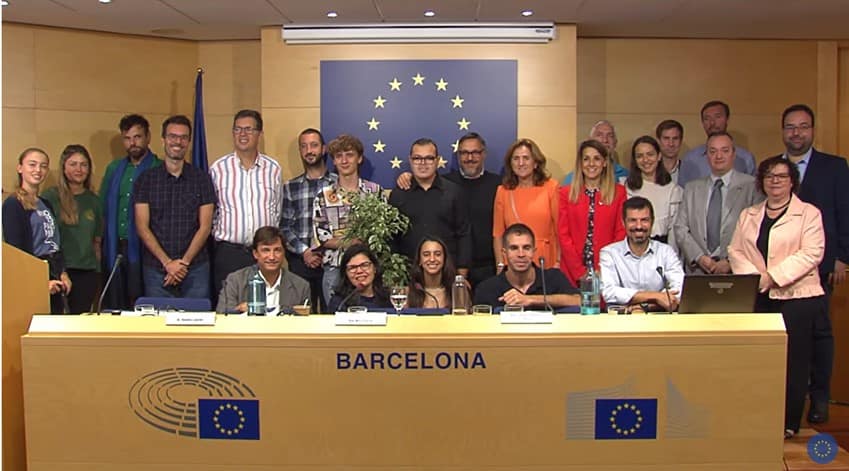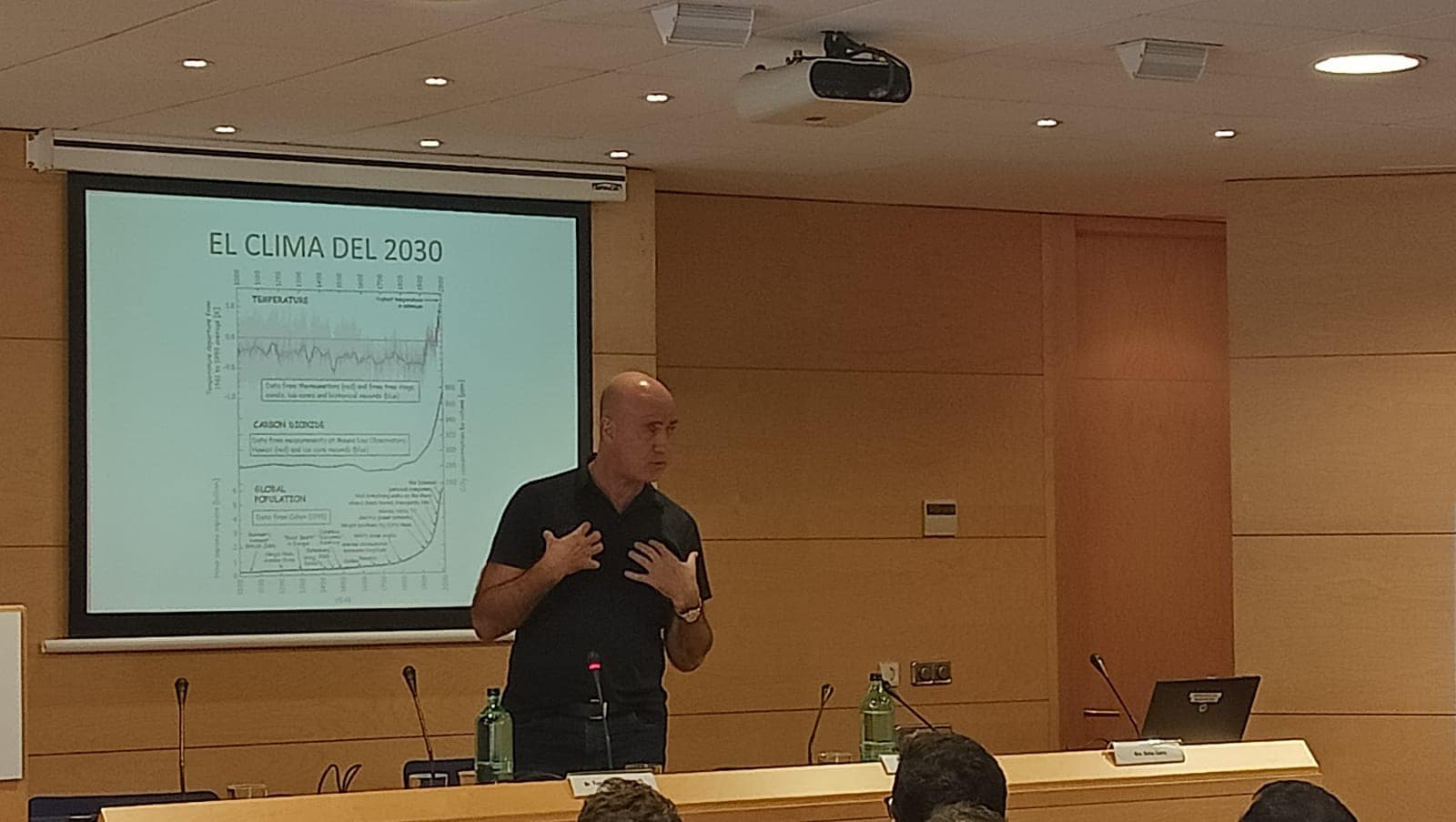Meeting of the spanish ambassadors of the
EU Climate Pact in Barcelona
On 06 October 2022, the Spanish Ambassadors of the Climate Pact met at the Representation of the European Union in Barcelona to address the role of young people and their commitment to climate action.


The conference was opened by Marc Sanglas i Alcantarilla, Director General for Environmental Quality and Climate Change of the Generalitat de Catalunya, and Manuel Szapiro, Director of the European Commission Representation in Barcelona. Both agreed that the role of young people is critical in a complicated climate future. Szapiro added:
“There is still a lot to do to achieve a carbon-neutral continent, and we can only do it if we get young people involved. We can’t give young people back the time the pandemic robbed them of, but we can listen to them, work with them, give them a voice and make the European Union stronger.”
With this in mind, 2022 has been declared the European Year of Youth.
Carmen Marqués Ruiz, ambassador of the Covenant, then took the floor and explained that “climate change must be understood as a global challenge with a local impact that affects every corner of the planet, including Catalonia. It is a challenge that defines our time and requires a global view that goes beyond short-term interests, as well as a strong determination to change our habits. The war in Ukraine has made a just and comprehensive ecological transition even more urgent. Let’s hope that COP27 will seize the opportunity.”

Young people’s views and feelings about climate change were presented by Maria Serra and Sandro Lasnier, two young ambassadors of the European Climate Pact, who spoke about the concept of “eco-anxiety”: “Many of us suffer from climate anxiety, but we do nothing about it. 50% of young people said they are stressed or worried about what climate change means and what it could lead to.” To this, Serra added that according to UNICEF’s State of the World’s Children 2021 study, anxiety and depression are the most common diseases among European adolescents, occurring in 55% of the population between 10 and 19 years old and rising to 70% when young people are added. These data show very clearly that current capitalism is not the solution on either a climatic or social level.”
In this way, the young people were the protagonists of the meeting, without climate protection being understood as an inevitable burden for the younger generations, but rather as a great opportunity that they are ready to seize, and for which they must be given the necessary space. This willingness is reflected in the closing words of Maria Serra’s speech, “We are a generation moving from fear to eco-fear, and from organizing to action, from despair to climate justice. A generation that uses the climate crisis as a turning point for a more just, less cruel and more nature-loving world.”

Finally, Tomàs Molina, Head of Meteorology at Televisió de Catalunya and Ambassador of the European Climate Pact, spoke about climate change in Catalonia and the need to learn about new meteorological phenomena that are not common in the region. “We need to learn how to predict novel meteorological phenomena such as hurricanes, heat outbreaks, and Mediterranean storms (…) and how to communicate them to the public. It’s also necessary that the different institutions, such as civil protection, harbor masters and society in general, know how to respond to these new situations we face.”
Outlook for the Climate Conference COP27
Vera Estefanía, from the Ministry of Environmental Change and the Demographic Challenge, stressed that the involvement of young people in the fight against climate change is fundamental to ensure the continuity of this commitment. For this reason, young people from 10 Spanish universities will be part of the delegation that will attend the summit to be held in Egypt in November. It concluded that “climate action can help move the geopolitical chessboard in the right direction.”
Spanish commitment
There are currently more than 900 ambassadors across Europe and 205 of them, including ambassadors and friends of the Pact, are in Spain, the country with the second highest number of citizens participating in the initiative after Italy. They are all spread across Spain and have different profiles, ranging from 15 to 70 years old. Citizens, organizations and companies enter into various commitments that are made public. In addition, more than 2350 Spanish citizens have already made commitments and 39 Spanish organizations have committed to more than 200 actions to reduce their impact and contribute to the fight against climate change. The most strongly represented sectors are: Electricity utilities, banks, telecommunications, capital goods and construction.
